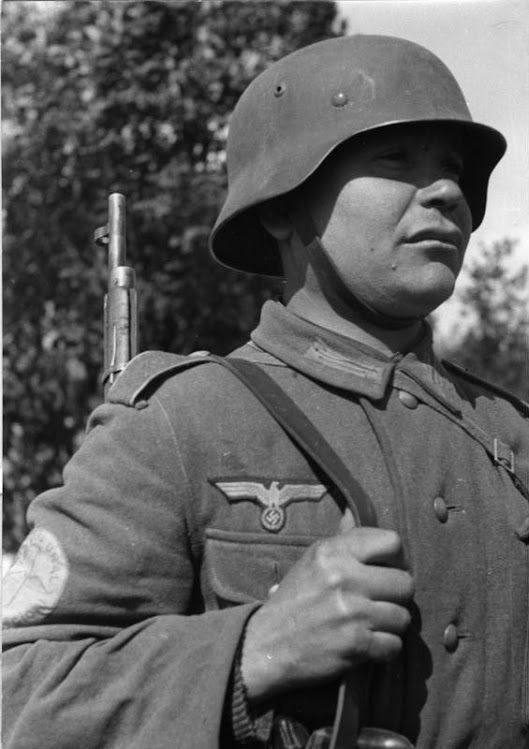The weekend after New Year’s Day, on the eve of fruitless negotiations between US and Russian officials in Geneva, Ukrainians participated in small protests around the world under the banner, “Say No to Putin.” The far-right-powered Movement to Resist Capitulation (Rukh Oporu Kapitulyatsiyi, ROK) in Ukraine launched the day of action, championed abroad by the Ukrainian World Congress, headquartered in Toronto. The global campaign was in fact led by the internationally active OUN-B, the clandestine “Banderite” faction of the far-right Organization of Ukrainian Nationalists, which today pulls the strings of the ROK and UWC, but decades ago helped the Nazis perpetrate the Holocaust in Ukraine.
In light of recent events in Kazakhstan and widespread speculation about an imminent Russian invasion of Ukraine, the Banderites used the opportunity to promote a cause which they’ve so far failed to get off the ground: to create a 21st century successor to the Anti-Bolshevik Bloc of Nations (ABN, 1946-96), a self-described coordinating body of anti-Russian, anti-communist organizations representing the “submerged nations” of the Soviet Union. The OUN-B was essentially the vanguard party of the extremist Bloc, which long insisted upon the inevitability of World War III. As a lazy writer I often refer to Scott and Jon Lee Anderson’s description of the ABN in the 1980s as the “largest and most important umbrella for former Nazi collaborators in the world.”
At the January 9 protest in Kyiv, a retired colonel in the Ukrainian armed forces who participated in the Euromaidan, fought in the Donbas, and later co-founded the “Free Idel-Ural” organization, Syreś Boläeń, declared the need for a new “united front” against Russia, characterizing the conflicts in Kazakhstan and eastern Ukraine as part of a single war waged by the Kremlin. Boläeń, himself half-Russian, was born in the Mordovian Autonomous Soviet Socialist Republic in 1958, and moved to Ukraine at the age of twenty. Forty years later he co-founded Free Idel-Ural. In 2019, Boläeń was inaugurated in Kyiv as the Inyazor, or “chief elder” of the Erzyans, a subgroup of the indigenous Mordvins (aka Mordovians). (more...)
A New ABN? "Idel-Ural" and Banderite Foreign Policy

No comments:
Post a Comment